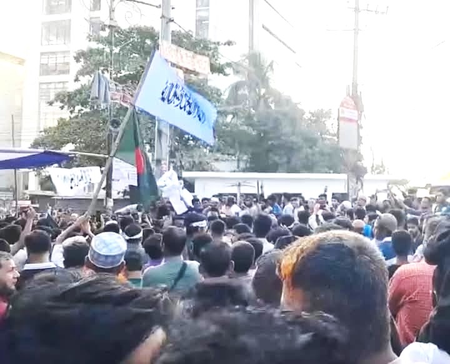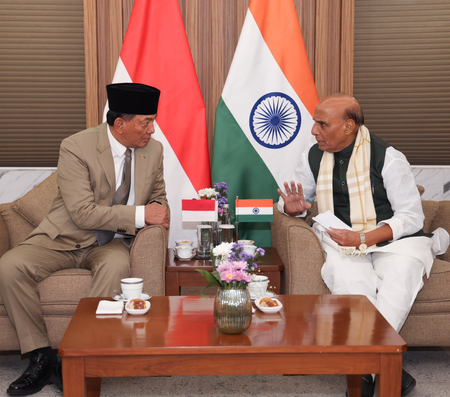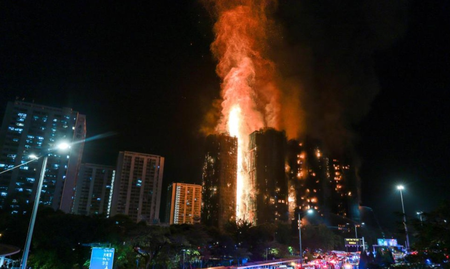
Colombo, Nov 27 (IANS) The re-emergence of terror group Hizb ut-Tahrir (HT) in Bangladesh’s public arena — marked by its gathering near Baitul Mukarram Mosque in Dhaka – has exposed how extremist ideologies do not vanish but adapt, recalibrate, and exploit the political landscape, a report said on Thursday.
It added that HT resurfaces with a renewed agenda aimed at undermining constitutional sovereignty, infiltrating institutions, and weaponising political turbulence to reshape the nation’s trajectory.
According to a report in Sri Lanka Guardian, the sight of white caps, black-and- white banners, and coordinated chants of “Khilafah” and “Allahu Akbar” was not merely a theatrical symbolism; it rather represented a carefully crafted attempt to reassert a transnational ideology that stands in conflict with Bangladesh’s constitutional framework.
“In fact, Hizb ut-Tahrir stands as one of the most insidious threats to Bangladesh’s peace and sovereignty. Cloaked in the rhetoric of piety, this militant outfit peddles a fanatical, anti-state ideology designed to erode our constitutional order and plunge the nation into ruin. Its operatives prey on disillusioned youth, poisoning minds with extremist dogma and plotting to dismantle the very fabric of our democratic republic. It is deeply entangled with every malignant political Islamist faction in Bangladesh, operating through the shadows and the machinery of cloak-and-dagger intrigue,” the report detailed.
“Bangladesh, born of blood and sacrifice in 1971, cannot and must not tolerate such treachery. This organisation is not a movement of faith-it is a malignant force that seeks to destabilise the country, undermine its institutions, and imperil its people. It must be confronted, exposed, and extinguished with the full weight of the law and the unwavering resolve of a vigilant nation,” it added.
The report stated that the HT’s agenda is explicit and unambiguous—dismantling nation-state constitutions and replacing them with a unified caliphate governed by a single interpretation of Sharia.
“Elections, pluralism, and legislative deliberation are dismissed as illegitimate ‘man-made law.’ This is not a movement seeking accommodation within Bangladesh’s constitutional frame; it is an argument for the abrogation of the frame itself,” it stressed.
Although HT presents itself as “non-violent,” the report said, its absolutist end-state and rejection of democratic institutions create a permissive intellectual corridor that enabled radicalisation in Bangladesh. The US Country Reports on Terrorism reportedly highlighted how the persistence of banned ideologies sustains in an environment conducive to extremism even when no explicit acts of violence occur.
The report emphasised that the political turbulence since 2024 in Bangladesh has “widened discursive space”, while extremist actors have “tapped into broader protest ecosystems by appropriating the vocabulary of rights and anti-authoritarianism”.
–IANS
scor/as




